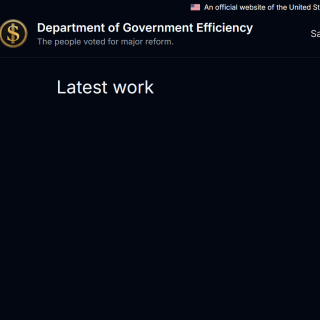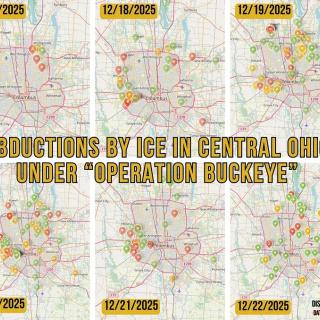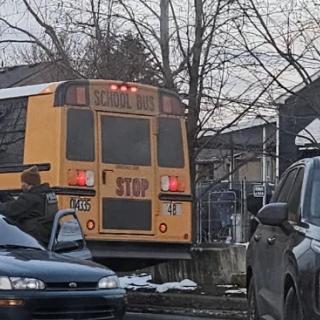Advertisement
All Hands on Deck! Tell Your Ohio Senator and Representative NO ON HOUSE BILL 6.
FIND your legislators and their phone numbers at http://legislature.ohio.gov. Call by July 16.
Ohio House Bill (HB) 6 is a huge proposed bailout for FirstEnergy, the electric utility that owns Ohio’s two nuclear power plants, Davis-Besse and Perry, both located on Lake Erie where they threaten the drinking water of millions.
The latest incarnation of the ever-changing HB 6 would give FirstEnergy about $157 million/year through 2026. This would come from Ohio’s electric ratepayers – even those outside FirstEnergy territory. The regressive measure would add about $1/month to residential bills and would hit small businesses hard.
Even worse, HB 6 also quashes Ohio’s renewable energy and efficiency standards. Ohio is poised to be a leader in wind and solar development. Efficiency mandates have so far cost Ohioans $1.5 billion and will save $8.7 billion over their lifetime. These benefits are being crushed by through legislative shenanigans.
Because it is illegal for Ohio to directly subsidize any particular energy source, Ohio Republicans have crafted HB 6 as “The Ohio Clean Air Program.” Cleverly, the word “nuclear” is not even in the bill. But it is written in a way that only gives a bailout to FirstEnergy for their 2 nukes and 2 coal plants, one of which is in Indiana!
Ohio’s media have come out strongly against HB 6. Many hours of testimony have been heard at the Statehouse, the vast majority against the bill. Opponents have testified that no one bailed out their towns when industries left.
Indeed, worker jobs would be affected by plant closures, and towns and local businesses would feel the impact. With enough public pressure, decommissioning – the dismantling of the plants – could begin immediately upon closure and nuclear workers could be rehired for that enormous job.
The Ohio House passed HB 6 on May 23. Stunningly, ten democrats voted for this Republican bill. On June 30, in an unusual move, the legislature extended their session by 17 days. Please call your legislators during this window and tell them NO ON HB 6. And please switch if you have FirstEnergy as your electric supplier.
Middle School Near Portsmouth Nuclear Site Closed Due to Radioactive Contamination
On May 13, headlines were made around the world when the Scioto Valley School Board closed the Zahn’s Corners Middle School in Piketon, Ohio for an indefinite period. Closure was due to neptunium, a radioactive element, being found by an air monitor outside the school.
The school is about 4 miles as the crow flies from the Portsmouth Nuclear Site, where uranium was enriched for nuclear bombs starting in 1956. Later, the operation was switched to make low-enriched uranium for nuclear power. The facility shut down in 2001 and “cleanup” is underway.
In a stunning display of ignorance and arrogance, the U.S. Department of Energy (DOE) brought in reprocessed high-level radioactive waste and ran it through the 97 acres of enrichment buildings for years, contaminating the site with some of the most dangerous radioactive elements in existence.
The school issue came to light when citizens reviewed the Department of Energy’s (DOE) Annual Site Environmental Report from 2017—released to the public in January 2019. The report showed that neptunium had been detected in a monitor outside the school. The Department did not alert the public to this finding.
Michael Ketterer, retired professor at Northern Arizona University and an expert on nuclear isotope analysis, came to the site and took samples. Ketterer found neptunium, plutonium and enriched uranium in local attics and in Little Beaver Creek. Ketterer’s Report, done pro bono, proved that these radioactive elements came from the nuclear site.
In response, DOE said that this radioactive contamination was within “allowable” limits and tried to say that the source of the contamination was from fallout from nuclear bomb testing.
Department of Energy wraps itself in a cocoon. Offsite radioactivity has been documented by citizens over the years. Yet DOE, by simply remaining silent, has managed to avoid accountability. The silence continues.
- At a public meeting on April 27, DOE stated that all the data was in for the 2018 Annual Site Environmental Report and there were no detections of neptunium. When later asked if ANY radioactivity was detected, they admitted that americium was found by the school air monitor in 2018.
- Anne White, DOE Assistant Secretary for Environmental Management, met with Pike County leaders in May. In response, DOE Secretary Rick Perry asked for White’s resignation and reassigned her deputy. Activities at the site are not being suspended or tightened.
- DOE sent only one person, and no top leadership, to the Site Specific Advisory Board meeting in June. The Board is charged with advising DOE on the cleanup of the site. The DOE representative could not answer the questions from a room full of angry citizens. Hence, no DOE accountability.
- DOE cancelled the Site Specific Advisory Board Subcommittee meetings scheduled for June, citing a class action lawsuit filed May 26by nearby residents claiming radioactive contamination of their properties. A second class action lawsuit has since been filed.
More samples were taken for official testing over the Memorial Day weekend. Samples were split between DOE, the Ohio Department of Health and the Pike County Health District.
Hats off to Pike County Health District Commissioner Matt Brewster and the citizens of Pike County who continue to keep the issue in the limelight.
See also the Free Press Facebook post 6-8-19: A stunning case of kids, radioactivity and government neglect emerges in Ohio
Ohio Supreme Court Rescinds PUCO Bailout of FirstEnergy
On June 19, in a decision favorable to Ohio consumers, the Ohio Supreme Court reversed a PUCO (Public Utilities Commission of Ohio) order allowing FirstEnergy to collect between $168 million and $204 million yearly from its ratepayers. During the period of 2017-18 FirstEnergy received a total of $440 million from customers, according to a state consumer advocate.
The court made the decision based on the fact that PUCO made no requirement for the money to be used for grid modernization, though this was the PUCO’s stated purpose. The money FirstEnergy has collected is not refundable.
FirstEnergy has previously filed for a 2-year extension for this bailout. The PUCO could keep the money flowing from ratepayer pockets by passing a new bailout rider requiring FirstEnergy to use the money for grid modernization.
Nuclear Insanity: Ohio House Bill 104
Originally introduced as HB 771 in December 2018, House Bill 104 was reintroduced into the Ohio House in March and has had a sponsor hearing in the House. Called the “Advanced Nuclear Technology Helping Energize Mankind (ANTHEM) Act,” HB 104 would establish an “Ohio Nuclear Development Authority” and an “Ohio Nuclear Development Consortium” that would authorize tax credits for investments therein.
HB 104 appears to have been written by and for Cleveland-based e-Generation, whose parent organization is Energy from Thorium. These organizations are made up of the same few individuals, whose goal is getting public money, whether or not anything ever comes to fruition.
Insane ideas in this bill include a major shift of nuclear accountability, spreading nuclear research and development from the federal government to state entities and/or public-private partnerships; a dangerous comingling between military and civilian nuclear activities; reprocessing of high-level radioactive waste; the use of eminent domain; and taxpayers paying for all nuclear “cleanup.” It also poses a weapons proliferation risk.
This convoluted proposal was written as a way to get the public to subsidize a new nuclear industry – tailor-made for one company.
The bottom line is that no nuclear research or development will occur anywhere in the world without public subsidy.



